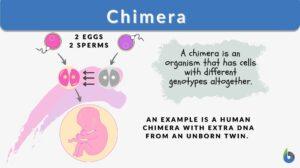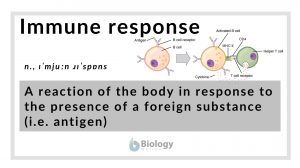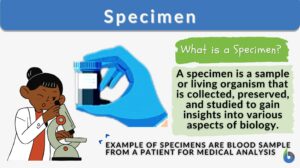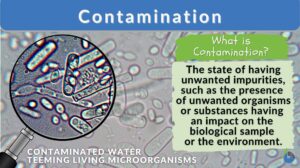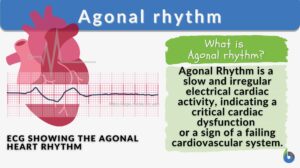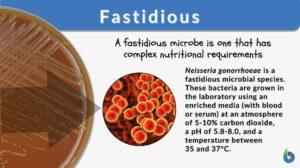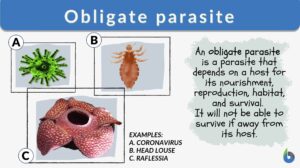Search Results for: detection
Immune response
Immune Response Definition An immune response is defined as the reaction of the body in response to the presence of a... Read More
Biosecurity and Biocontrol
By: Maria Victoria GonzagaIn the previous lesson, we learned about the importance of modern science... Read More
The consequences of antibiotic use in horticulture
Leading articlesFrederick R. Falkiner* Department of Clinical Microbiology, Trinity College, Dublin; Central Pathology... Read More
Contamination
Contamination Definition Contamination, sometimes interchanged with pollution, is the existence of live things or... Read More
Indicators and reagents
Indicators and reagents substances used for the detection, identification, analysis, etc. Of chemical, biological, or... Read More
Visual acuity
visual acuity (Science: microscopy) The ability to detect fine details or small distances with the eye. Visual acuity can... Read More
Passive agglutination
Definition noun An agglutination reaction of inert particles coated with soluble antigen through an antiserum specific for... Read More
Agonal rhythm
Agonal Rhythm Definition Agonal rhythm is the slow, irregular heart rhythm (electrical activity of the heart), particularly... Read More
Reverse passive agglutination
Definition noun A type of agglutination reaction in which known antibody is bound to a carrier particle instead of the... Read More
Active agglutination
Definition noun An agglutination reaction in which the antigen is found naturally on particle Supplement Agglutination... Read More
Complement fixation test
Definition noun (immunology) A form of immunological test for the detection of the presence of either a particular antibody... Read More
Peroxidase
peroxidase (Science: enzyme) A haem enzyme that catalyses reduction of hydrogen peroxide by a substrate that loses two... Read More
Feulgen stain
Feulgen stain (Science: technique) a selective cytochemical reaction for dna in which sections or cells are first hydrolyzed... Read More
Thalassophobia
Among many psychological and psychiatric disorders, one is the fear of the ocean and the fear of deep water, which in... Read More
Hydrophobic
Hydrophobic Definition The fear of mixing or reacting with water under a given set of reaction parameters is often referred... Read More
Fastidious
Fastidious Definition We can define fastidious as a term used in microbiology to denote a species that lacks the ability to... Read More
Embryology
Embryology Definition Embryology is a branch of biology that deals with the topics concerning gamete formation... Read More
Nucleosome
Nucleosome Definition Every organism is made of deoxyribonucleic acid, also known as DNA. DNA is made up of numerous... Read More
Marker enzyme
Definition noun, plural: marker enzymes Any enzyme confined to a particular organelle, cell, or cellular... Read More
Obligate parasite
Parasitism is a form of symbiosis that occurs between a parasite and its host. The parasite is the organism that generally... Read More
Eubacteria
Eubacteria are prokaryotic microorganisms consisting of a single cell lacking a nucleus and containing DNA is a single... Read More
Fluid mosaic model
Fluid Mosaic Model Definition What is the fluid mosaic model? The fluid mosaic model is a three-dimensional representation... Read More
Electromagnetic spectrum
Definition noun The spectrum of all types of electromagnetic radiation Supplement The electromagnetic spectrum includes... Read More
Primer extension
Definition noun A method that uses the enzyme Reverse Transcriptase (RNA-dependent DNA polymerase) to determine the... Read More



